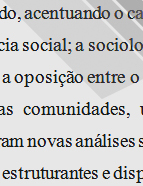

................................
( ACRONYMS – ARCL, Academia Real das Ciências de Lisboa; ARC, Academia Real das Ciências; DHP, Dicionário de Historiadores Portugueses ; DHPJS, Dicionário da História de Portugal , Joel Serrão; FD, Faculdade de Direito; FDUC, Faculdade de Direito da Universidade de Coimbra; FDUL, Faculdade de Direito da Universidade de Lisboa; FEUP, Faculdade de Economia da Universidade do Porto; FLUC, Faculdade de Letras da Universidade de Coimbra; FLUL, Faculdade de Letras da Universidade de Lisboa; FMUP, Faculdade de Medicina da Universidade do Porto; UC, Universidade de Coimbra; UE, Universidade de Évora; MJ – Ministério da Justiça)
Addressing the history of institutions prior to 25 April 1974 generally means also discussing the history of law. Among other things, this had two important consequences for the period. The first concerns the fact that, with rare exceptions, scholars of institutional history were academics from the FD, although with the emergence of the Schools of Arts and the course in Historical and Philosophical Sciences, the first historians tout court began to appear, including historians without university training. However, the prevalence of legal historians made the history of institutions a history that favoured legislative sources and the model of state organisation . The second consequence has to do with the understanding of ‘institutions’ at the time, which differed from that adopted by postmodern historians and which constitutes the theoretical framework within which the author of this text operates. While this new institutional analysis began to focus on the multidimensional mechanisms of power production seen as a force of control and discipline, “institutions” were previously understood as part of the legal system that only accepted power segregated by official law and the state.
This work is financed by national funds through FCT - Foundation for Science and Technology, I.P, in the scope of the projects UIDB/04311/2020 and UIDP/04311/2020.
